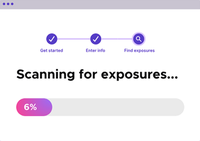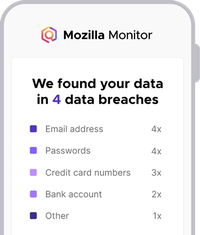Massive Password Leak: 16 Billion Credentials from Apple, Google, Facebook Exposed
Cybersecurity experts uncover a record-breaking breach exposing 16 billion stolen credentials from malware-infected devices. Learn how to protect your accounts and check if your data was compromised.
The compromised accounts span major platforms including Apple, Google, Facebook, GitHub, Telegram, popular VPN services, and even government websites. The sheer scale of this leak is unprecedented and poses risks to online privacy and security.²

What do we know so far?
Cybersecurity researchers report they have uncovered 16 billion login credentials exposed across 30 separate databases. That's equivalent to roughly two leaked accounts for every single person on the planet. Although 16 billion credentials are being reported, many of these credentials may be duplicates.
The key facts:
- This information was stolen using a type of malicious software known as “infostealer” malware. Infostealers are stealthy programs that infiltrate devices, often without the user’s awareness, and are engineered to extract valuable data. Once installed, they quietly collect login credentials, browser-saved passwords, autofill information (such as addresses and credit card details), session cookies (which keep you logged into websites), and even cryptocurrency wallet credentials.
- The companies behind these platforms — like Apple, Google, and Facebook — weren't breached. Data was stolen from people's devices infected with malware, often through pirated software, malicious ads, or deceptive downloads.
- The datasets contain login URLs, usernames, and passwords in a clean, structured format — making them especially dangerous. This isn’t old or recycled information. It’s fresh, well-structured data — often shown as “URL, username, password” — that criminals can easily use. With it, they can take over accounts, steal identities, send convincing phishing emails, and even launch ransomware attacks.
- The databases were only online for a short time before being secured, but it’s unclear who was behind them. Even though the exposure likely lasted just a few days, that’s often enough. Once stolen credentials are leaked, they rarely vanish — they’re usually copied, shared, and re-uploaded across dark web forums and hacker marketplaces.
What should you do right now?
You have power, and your actions can make a difference.
Here’s what Mozilla recommends:
✅ Update your most critical passwords: Start with critical accounts like email, banking, and social media, especially those tied to money, identity, or communication. Use long, unique passwords for each.
✅ Turn on two-factor authentication (2FA) or passkeys for all your accounts: These are among the most effective ways to protect against account takeovers. Use an authenticator app or your password manager for 2FA whenever possible. For even stronger, phishing-resistant protection, enable passkeys on critical accounts.
✅ Check if your personal info has been exposed: Use a trusted tool like Mozilla Monitor to see if your email appears in known data breaches and get guidance on what to do next.
✅ Review your digital footprint: Delete unused accounts and apps with excessive permissions. The less personal data you have online, the less you can lose.
✅ Watch for suspicious activity; Check recent login history on your most important accounts. Look for unfamiliar devices or locations, and stay alert to phishing emails or texts that may follow a breach.
Data breaches like this one are a stark reminder that your personal information is always a target. But you're not powerless. By taking proactive steps, like using strong passwords, enabling two-factor authentication, and staying alert to suspicious activity, you can protect yourself against most threats.
And you don’t have to do it alone. Mozilla Monitor helps you stay a step ahead by alerting you when your personal information appears in known data breaches. It’s simple, free, and built by a company that puts your privacy first.
Check your email now on Mozilla Monitor to see if you’ve been affected by over 800 data breaches and get personalized guidance to help secure your digital life.
Your data belongs to you, not to hackers.
